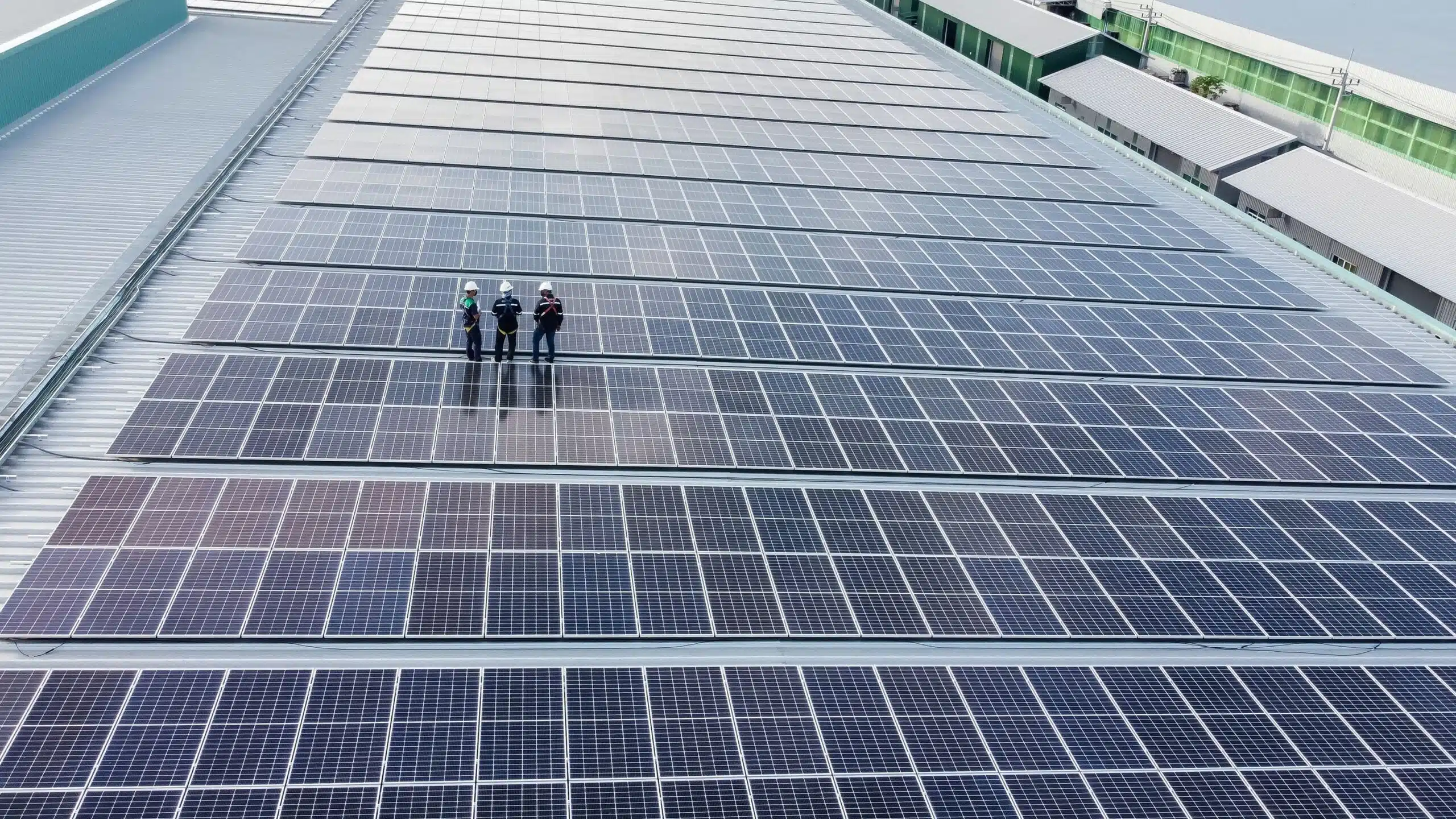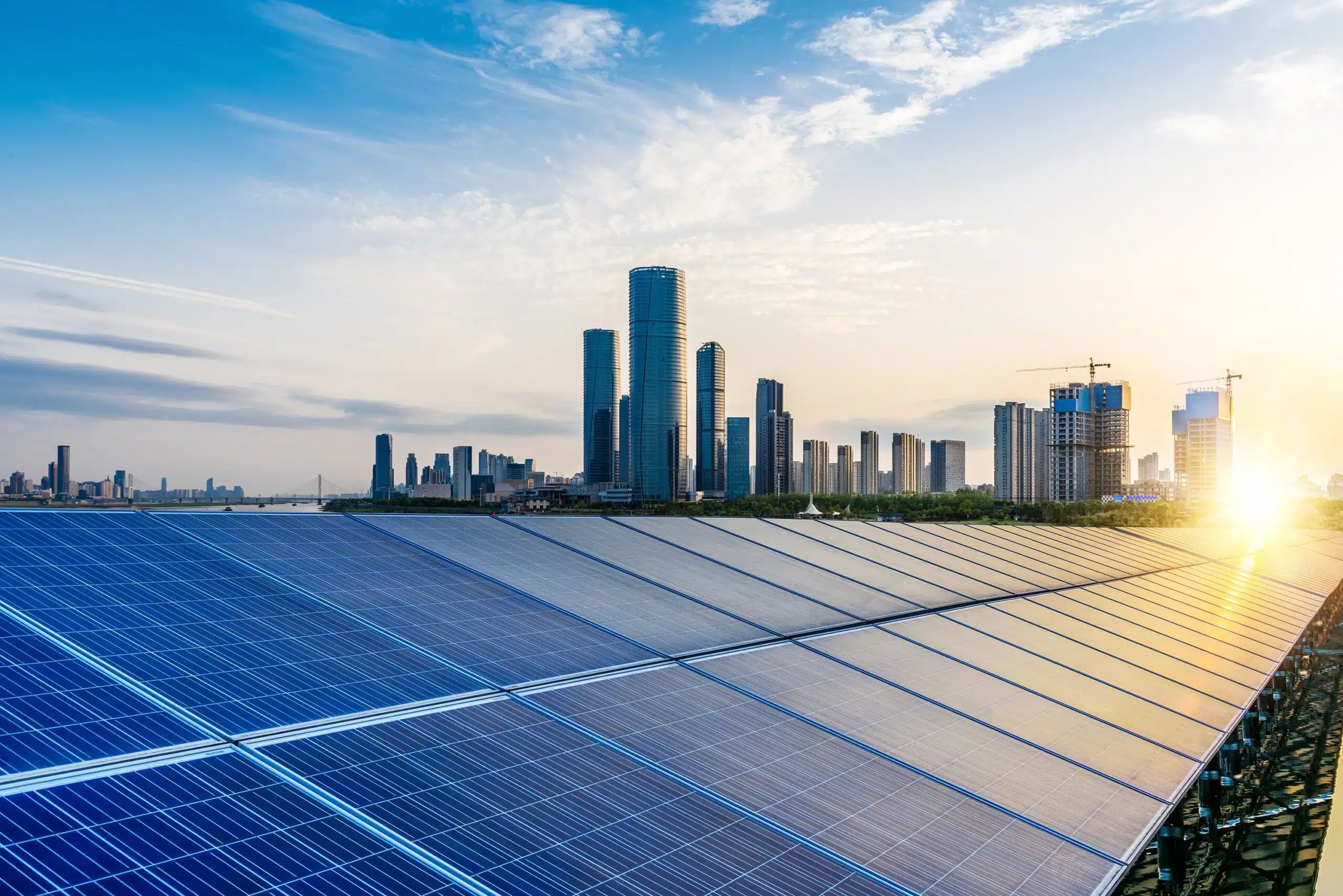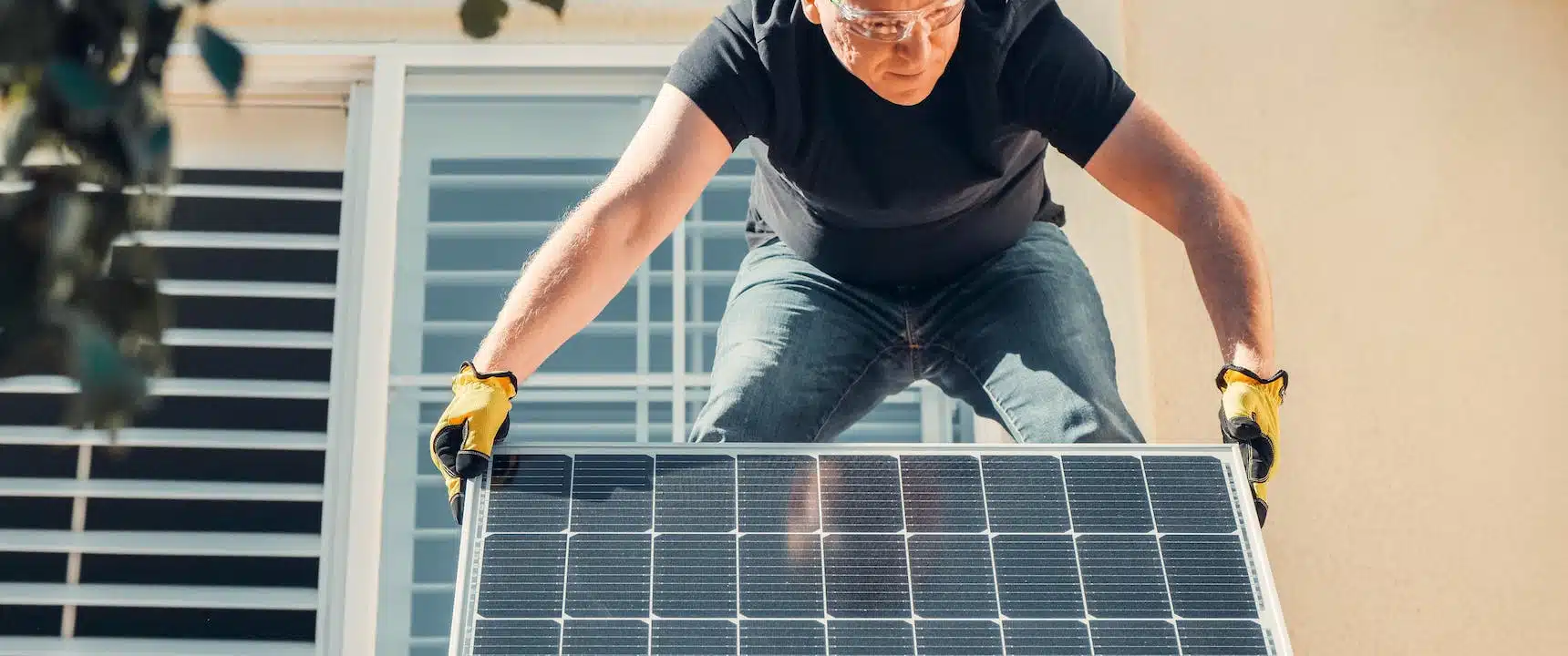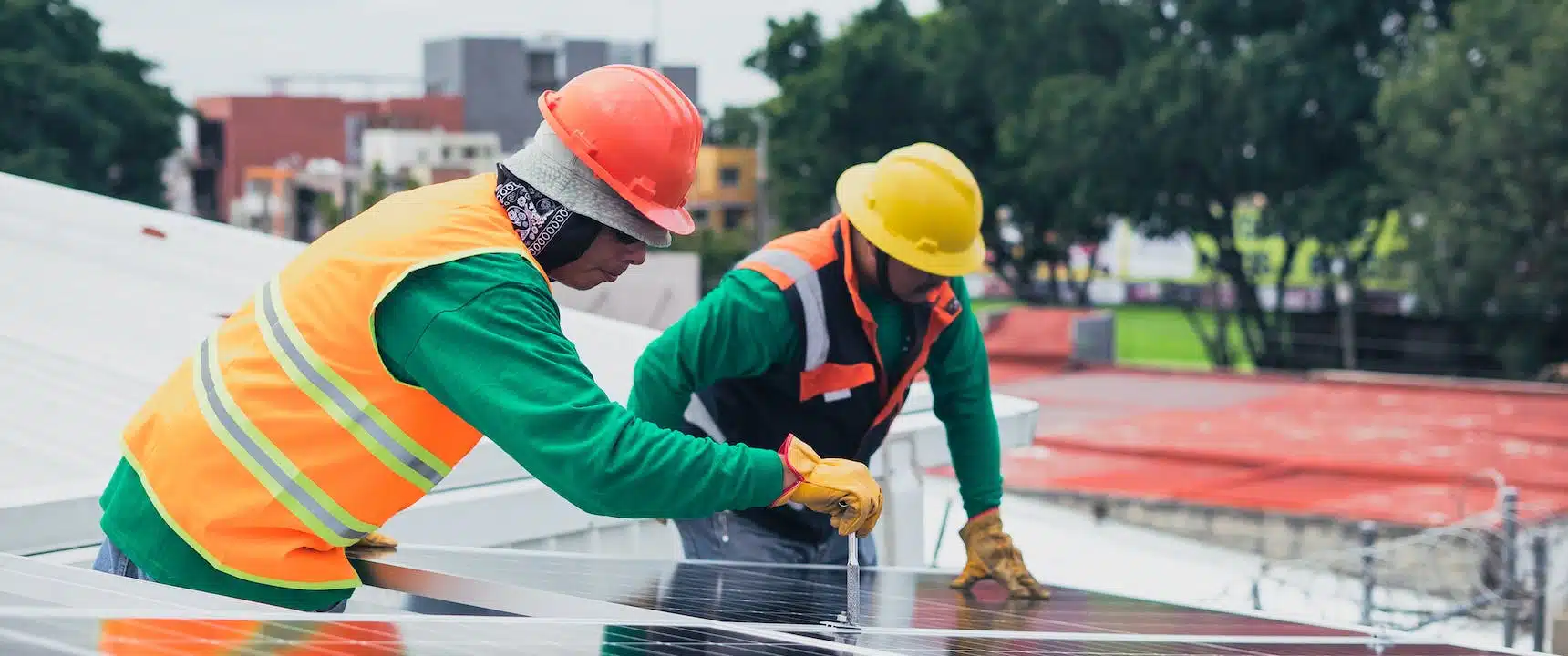Exploring Installation, Benefits, and Tax Credits
Solar energy has gained significant popularity in recent years as a sustainable and cost-effective alternative to traditional energy sources. While solar panels are commonly associated with residential properties, commercial buildings can also benefit from harnessing the power of the sun. We will explore how solar panels can be installed on commercial buildings, why they are important for commercial properties, and the tax credits available for businesses that adopt solar energy.
Installation of Solar Panels on Commercial Buildings
Installing solar panels on commercial buildings requires careful planning and consideration. Here are some key steps involved in the installation process:
1. Site Assessment
Before installing solar panels, a thorough assessment of the site is essential. Factors such as roof condition, orientation, shading, and available space need to be evaluated to determine if the building is suitable for solar panel installation. SolaTrue experts will take a careful assessment to ensure your business has the right roof for solar panels.
2. Structural Analysis
Commercial buildings often have complex roof structures, and it is vital to conduct a structural analysis to ensure that the roof can support the additional weight of solar panels. In some cases, reinforcements or modifications may be necessary.
3. Design and Engineering
SolaTrue installers work closely with commercial property owners to design and engineer solar systems that meet specific energy requirements. They consider factors such as energy consumption, available roof space, and system configuration. We ensure solar panels are placed in the right places that will be the most beneficial to you.
4. Permits and Approvals
Obtaining the necessary permits and approvals from local authorities is an important step in the installation process. This ensures compliance with building codes and regulations related to solar panel installations.
5. Installation and Wiring
Once all necessary approvals are obtained, the solar panels are installed on the commercial building’s roof using mounting systems. Wiring is then connected to the building’s electrical system, allowing the generated solar energy to be used or stored. SolaTrue works diligently to install your solar panels fast and efficiently.
Importance of Solar Panels for Commercial Buildings
Solar panels make a major difference for commercial buildings. Here are some of the many benefits that come with investing in solar panel energy.
1. Cost Savings
Commercial buildings consume a significant amount of energy, particularly for commercial activities such as heating, ventilation, air conditioning (HVAC), and lighting. These energy-intensive operations are necessary to maintain a comfortable and functional environment for employees, customers, or tenants. However, traditional energy sources like grid electricity can be quite expensive, leading to high utility bills for commercial property owners.
Solar energy, on the other hand, offers a cost-effective and sustainable alternative to grid electricity. By installing solar panels, businesses can generate their electricity, reducing their reliance on the grid and their energy costs. Studies have shown that commercial properties can save thousands of dollars annually when they switch to solar energy.
Installing solar panels can provide substantial business savings in the long run as these systems have minimal maintenance costs and a lifespan of around 25 years. When the initial cost of the system is factored in over the lifetime of the system, the savings can be significant. One study by the National Renewable Energy Laboratory found that a commercial solar system could lead to an average electricity cost saving of 60% for businesses.
Solar energy also provides a reliable and stable source of electricity. With the right solar panel installation, businesses can reduce their vulnerability to fluctuations in utility prices or unexpected power outages, which can be disruptive to operations. By generating their own on-site power, commercial property owners can have greater control over their energy supply and costs.
Furthermore, adopting solar energy can help businesses improve their environmental sustainability and reputation. It can give them a marketing edge in a world where customers are increasingly conscious about their carbon footprint and the environmental impact of the businesses they engage with.
2. Environmental Sustainability
Commercial buildings are responsible for a significant portion of carbon emissions due to their intensive energy consumption. Energy-intensive activities such as heating, cooling, and lighting contribute to greenhouse gas emissions, which are a major contributor to climate change.
By installing solar panels on commercial buildings, businesses can transition to a clean and renewable energy source. Solar energy is derived from the sun’s rays, which are abundant and freely available. Unlike traditional energy sources like fossil fuels, solar energy production does not release harmful greenhouse gases into the atmosphere, making it a sustainable and environmentally friendly choice.
Switching to solar energy allows commercial buildings to reduce their carbon footprint. Carbon footprint refers to the amount of greenhouse gas emissions, particularly carbon dioxide (CO2), produced by an organization’s activities. By generating their electricity from solar power, businesses can significantly reduce their reliance on fossil fuel-based electricity, thereby decreasing their carbon emissions.
Governments worldwide are implementing stricter environmental regulations to mitigate climate change. By proactively adopting solar energy, commercial buildings can stay ahead of these regulations and ensure compliance. This proactive stance demonstrates adaptability and future-proofing in an evolving business landscape.
3. Energy Independence and Reliability
By generating their electricity, commercial properties become less dependent on the grid and are better prepared for power outages or disruptions. Solar energy provides a reliable and consistent source of power that can help businesses maintain uninterrupted operations.
4. Enhanced Brand Image
In today’s socially conscious world, consumers prioritize brands and businesses that demonstrate a commitment to sustainability and environmental stewardship. Commercial companies can strengthen their brand image by committing to a cleaner environment.
5. Employee Engagement and Productivity
Embracing sustainable practices can boost employee morale and engagement. Employees are increasingly interested in working for environmentally responsible companies and are proud to be associated with organizations committed to a greener future. Demonstrating a commitment to the environment can foster a positive work culture and improve employee productivity.

Tax Credits for Commercial Buildings with Solar Panels
To encourage businesses to adopt solar energy, governments offer various tax credits and incentives. Here are some notable examples in the United States.
1. Investment Tax Credit (ITC)
The federal ITC allows businesses to claim a percentage of their solar system installation costs as a tax credit. As of 2021, the ITC offers a 26% credit for commercial solar installations. This credit reduces the upfront cost and accelerates the return on investment for commercial property owners.
2. Modified Accelerated Cost Recovery System (MACRS)
Under MACRS, businesses can depreciate the value of their solar systems over five years, allowing for faster tax deductions on the investment. This depreciation can significantly reduce the overall cost of installing solar panels.
3. State and Local Incentives
In addition to federal incentives, many states and local governments provide their own tax credits, grants, or rebates to businesses that install solar panels. These incentives may vary based on location, so commercial property owners need to research and take advantage of local programs.
Solar panels can be installed on commercial buildings, offering a multitude of advantages for businesses and the environment. By engaging in careful planning, seeking professional installation services, and taking advantage of available tax credits, commercial property owners can tap into the immense potential of solar power. This can result in reduced energy costs, enhanced sustainability practices, and a notable contribution towards a greener future. Embracing solar energy in commercial buildings is a win-win scenario, providing both economic benefits and environmental preservation. Moreover, it opens up the potential for substantial long-term financial savings. By wholeheartedly embracing solar energy solutions, commercial buildings can lead the way toward a brighter and more sustainable future.
Contact SolaTrue for your commercial solar panels.

Source:
Homeowner’s guide to the federal tax credit for solar photovoltaics (no date) Energy.gov. Available here. (Accessed: 29 July 2023).






